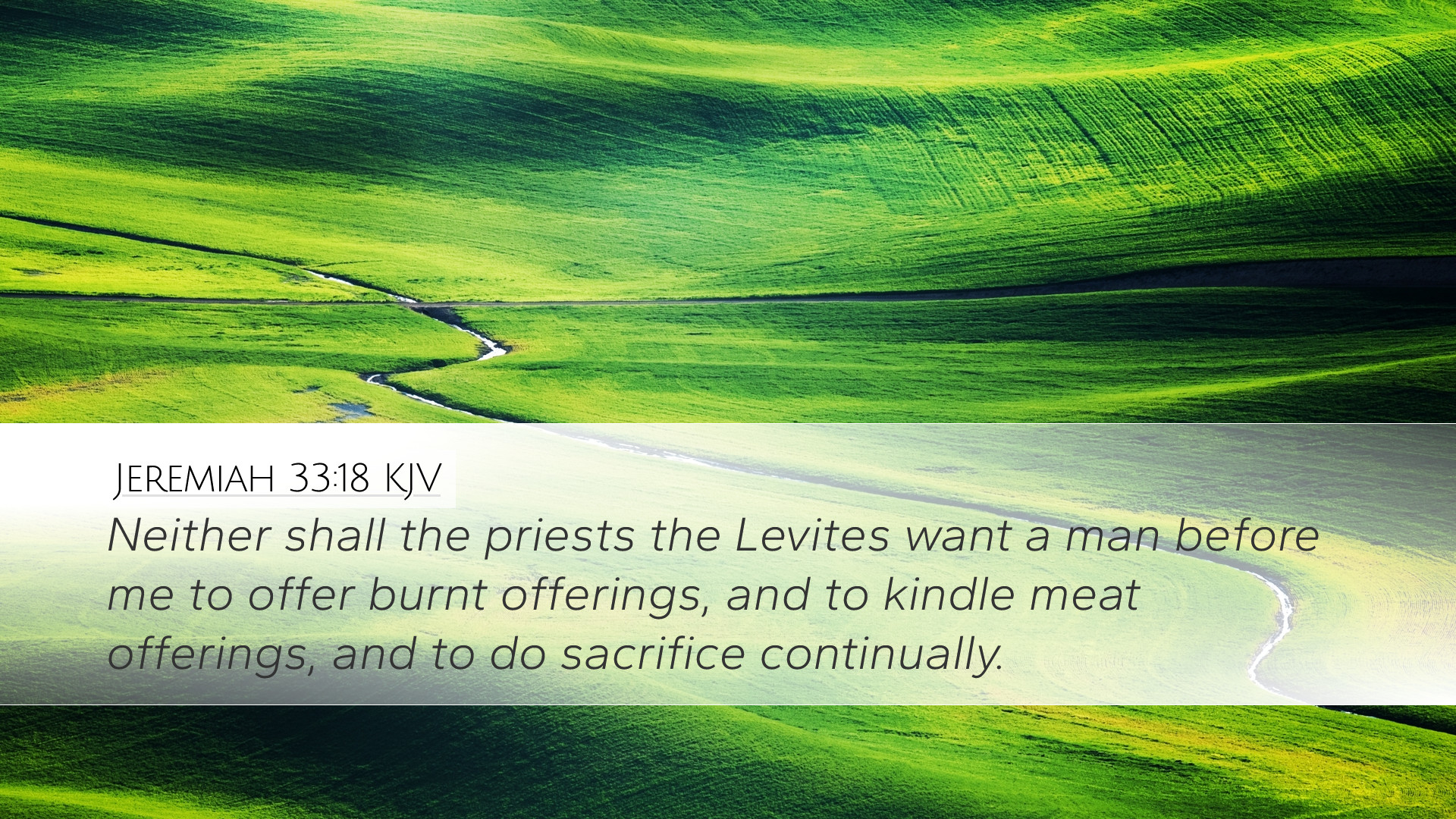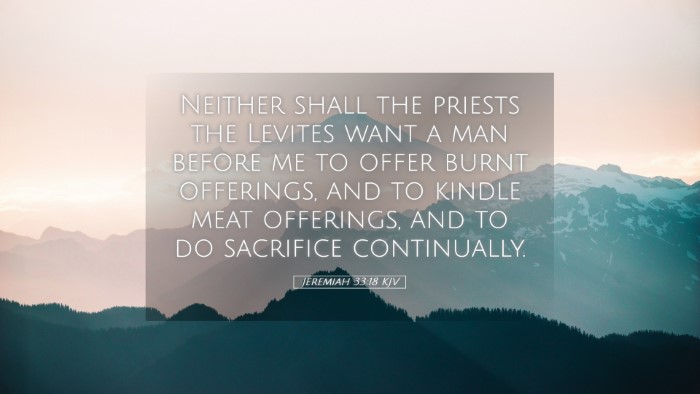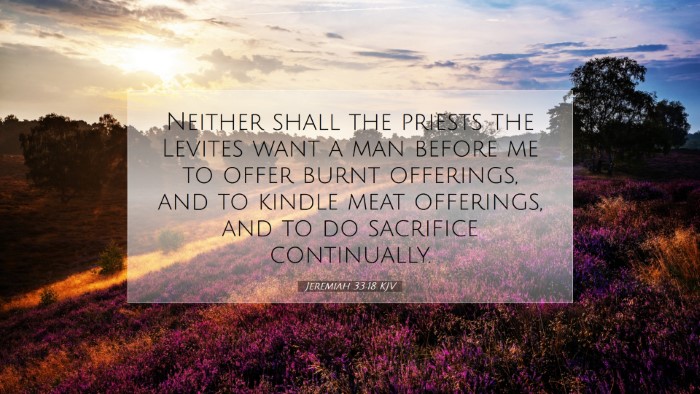Bible Commentary on Jeremiah 33:18
Jeremiah 33:18 states:
"Neither shall the priests the Levites want a man before me to offer burnt offerings, and to kindle meat offerings, and to do sacrifice continually."
This verse forms part of a message of hope and restoration given to the people of Israel, highlighting divine fidelity to the Levitical priesthood even amidst the turmoil of exile and impending judgment. As we delve deeper into this text through the lenses of various public domain commentaries, we will explore the rich theological significance and implications of this promise.
1. Contextual Background
The Book of Jeremiah addresses a crucial period in Jewish history, marked by impending destruction and subsequent exile. Jeremiah prophesied during a time when Israel was facing judgment for idolatry and disobedience. This particular chapter highlights God’s unwavering commitment to restore not only His people but also His instituted order of worship.
2. Exegesis and Analysis
According to Matthew Henry, this verse emphasizes the continuity of the priestly role within Israel's worship practices. The Levites were crucial in maintaining the sacrificial system and, thus, the spiritual health of the nation. Henry elaborates that the assurance presented here is one of permanence; God promises that priests will always be present to fulfill their duties.
Albert Barnes notes that the phrase "want a man" implies a guarantee that there will always be successors among the Levites. This assurance serves dual purposes: it affirms God’s commitment to the covenant made with Aaron and nurtures the hope of the exiled Israelites that their worship will be reinstated upon their return.
Adam Clarke further elucidates that the reference to "burnt offerings" and "meat offerings" touches upon the core aspects of Levitical worship that were foundational to Israel’s relationship with God. Clarke emphasizes that these offerings represent atonement and gratitude, which would be central to the community’s restored worship post-exile.
3. Theological Significance
This verse illustrates God's unbreakable covenant with the Levitical priesthood, serving as a powerful reminder of divine faithfulness. Each commentary highlights a critical theological theme:
- Steadfastness of God: The assurance provided in this verse reflects God’s immutability. He remains faithful to His promises regardless of Israel's disobedience.
- Masculinity in Priesthood: The emphasis on male Levites suggests the established order of worship, which carries implications for future generations of worship and ministry.
- Restoration and Hope: The promise encapsulates a greater narrative of redemption, indicating that God will not only restore Israel but also its means of worshipper engagement with Him.
4. Implications for the Church Today
The promise in Jeremiah 33:18 can be extrapolated to present-day worship frameworks. Miller-regarded theologian John Gill asserts that while the Levitical priesthood was specifically tied to Old Testament worship, the principles underlying this promise still guide contemporary church leadership. The assurance of ministry and worship continuity speaks to the need for sustaining spiritual leaders who can shepherd their congregations effectively.
Furthermore, the priesthood of all believers, articulated in 1 Peter 2:9, can be seen echoing the themes of worship outlined in Jeremiah. The continuity of ministry is a reminder that God equips His people for faithful service.
5. Conclusion
The verse Jeremiah 33:18 serves as a powerful testament to God's promise of sustaining His priesthood and, by extension, His community of believers. As commented upon by Matthew Henry, Albert Barnes, and Adam Clarke, this passage encapsulates themes of divine fidelity, restoration, and hope for God's people in any context. For pastors, theologians, and scholars, it evokes reflections on covenantal faithfulness and the enduring role of worship in a relationship with God.
In summary, as we meditate on this verse, we are reminded of our calling to uphold and honor the sacred responsibilities entrusted to us as we continue in our journey of faith and worship.


